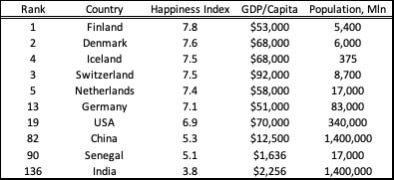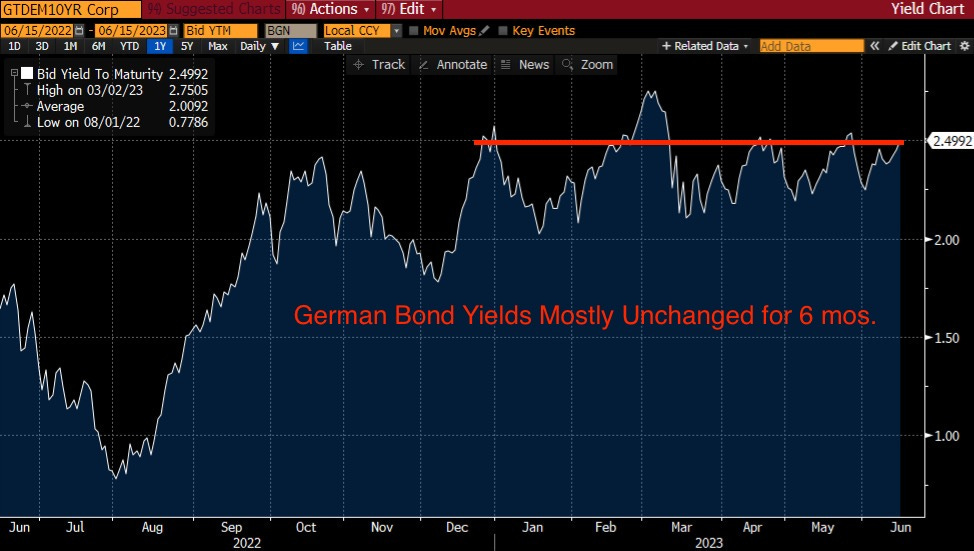If someone forwarded this to you, you can read about who I am here. I was a strategist and equity partner at the biggest hedge fund in the world. Now I make my thoughts available to you and implement them with my own capital. If you like this writing, you will enjoy my books Master, Minion, and Raising a Thief. This is not investment advice. Investing is risky and sometimes quite painful.
Quotes that caught my eye this week.
“People said that an age of speed required rapidity in art, precisely as they might have said that the next war could not last longer than a fortnight, or that the coming of railways would kill the little places beloved of the coaches, which the motor car was nonetheless to restore to favor.”
Proust, In Search of Lost Time, Volume IV, 1921
“Countries wishing to join the euro were obliged to hold their public debt down to no more than 60 percent of Gross Domestic Product and were expected to run budget deficits of no more than 3 percent of the same. Any country that failed these tests would be subject to sanctions, including substantial fines, imposed by the Union.”
Postwar, Tony Judt, 2005
Next month I head to Europe, a place where even highway rest stops serve decent food. Asked what Germans could be proud of, former Chancellor Angela Merkel answered, “I think of well-sealed windows, no other country can make such well-sealed and good windows.” Agreed.
Europe works so well that both Ukrainians and Africans are willing to give their lives either to get to the EU itself or be allowed to apply to join it. But that doesn’t mean Europe is a good place to invest. Indeed, the best opportunities may be in the cracks of its edifice, like the fact that Italy can’t borrow money for the same cost as Germany. Almost a quarter century after the euro’s introduction, theoretically, these opportunities should not exist.
As a system, Europe is structured somewhere between China’s tight controls and the US’s survival of the fittest model. The result is that Europeans are poorer than Americans, richer than Chinese, and happier than both. As the data below shows, the five happiest countries on earth are all in Europe. The US is number 19 on the list, despite having higher GDP per capita than Finland, Denmark, or Germany.
While this week’s news focused on today’s decision by the European Central Bank to raise interest rates to 3.5%, there was less attention on a story that might better explain how Europe functions: The EU has worked out an agreement to give gig workers—Uber drivers, Deliveroo cyclists, etc.—some benefits a regular European worker gets. Brussels treats Silicon Valley differently than Washington does, much to the chagrin of CEOs like Uber’s Dara Khosrowshahi, who signed a letter in protest. After suffering the extremes of economic volatility in the first half of the 20th century, the European project is about containing the restless chaos of Capitalism.
Thus superior rest-stop cuisine (Italy’s Autogrill) and red flags for investors. Over time, compared to the S&P 500, a basket of European stocks has been a terrible investment, as you can see below. The red line is the S&P 500 and the white line is European stocks, which are unchanged in price from 16 years ago! Europe has not produced any of the Silicon Valley superstars, which is part of what buoys the US, and also generally experienced much weaker growth.
This year is different, however. The best stock index to buy this year was Japan. But the second best was…Europe, despite monetary tightening, high inflation, and weak growth, all of which are generally terrible for stocks. In part, this riddle is solved by the behavior of bonds. Typically, investors won’t buy a bond (Germany’s yield = 2.5%) that yields far less than inflation (7%). You are lending money at a guaranteed loss. Lack of demand should drive bond yields up and, as a result, drive stock prices down. Yet, despite high inflation, investors are generally holding onto European bonds, as you can see below, which has helped the stock market.
True, the same behavior is evident elsewhere. But I suspect part of what is going on is the confidence Europeans have in their own institutions as the table below from Pew Center polling reveals. Overall, Europeans feel their institutions, including the European Central Bank, are working for them, a stark contrast to the US and many other countries.
Eastern Europeans








